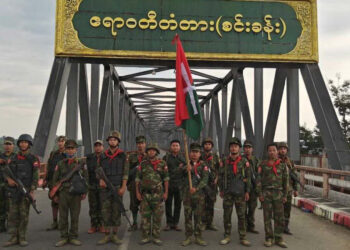SHANGHAI — Urumqi, capital of the largely Muslim Chinese region of Xinjiang, will crack down on activities that blur the boundary between religion and secular life and encourage “extremism,” the local government said.
During a meeting on Monday, local Communist leaders said they would also require government officials and party members to firmly believe in Marxism-Leninism and speak standard Mandarin Chinese in public, according to a notice posted on the official Wechat account of the Urumqi procuratorate.
China has been subject to heavy criticism from rights groups and foreign governments amid reports of a punitive crackdown that has seen the detention of as many as 1 million mostly Muslim ethnic Uighurs in Xinjiang.
But Beijing has denied accusations that it is systematically violating the rights of Xinjiang’s Muslims, saying it is only cracking down on extremism and “splittism” in the region.
Urumqi is currently taking action against the so-called “pan-Halal tendency”, a name given to the demands by Muslims that products such as milk or toothpaste comply with Islamic rituals.
The official Global Times said on Wednesday that the “demand that things be halal which cannot really be halal” were fuelling hostility towards religion and allowing Islam to penetrate secular life.
Chinese citizens are theoretically free to practice any religion, but they have been subject to increasing levels of surveillance as the government tries to bring religious worship under stricter state control.
Beijing has repeatedly cracked down on unauthorized religious activity, and last month issued new draft guidelines to crack down on the illegal online dissemination of religious information.

















